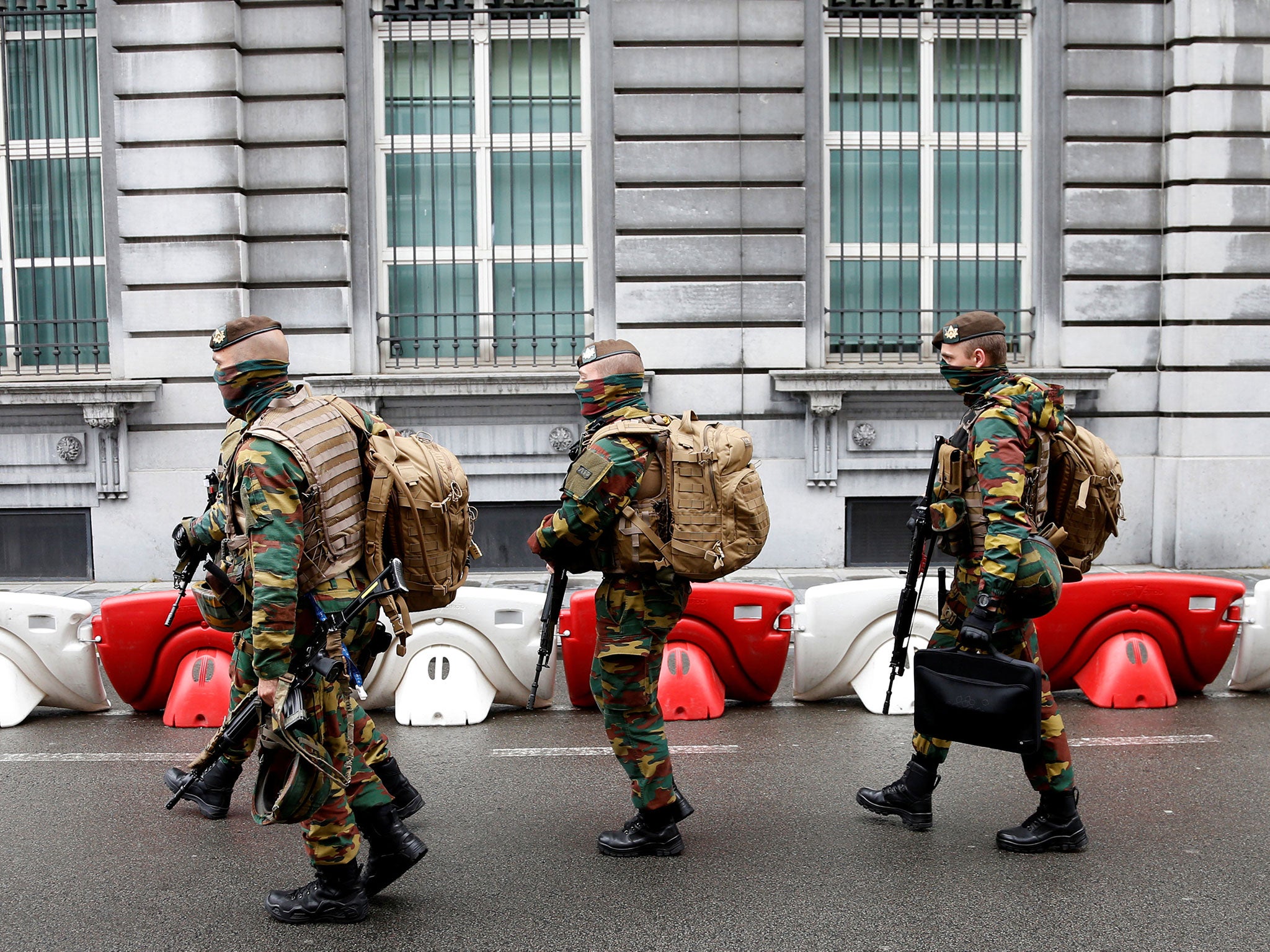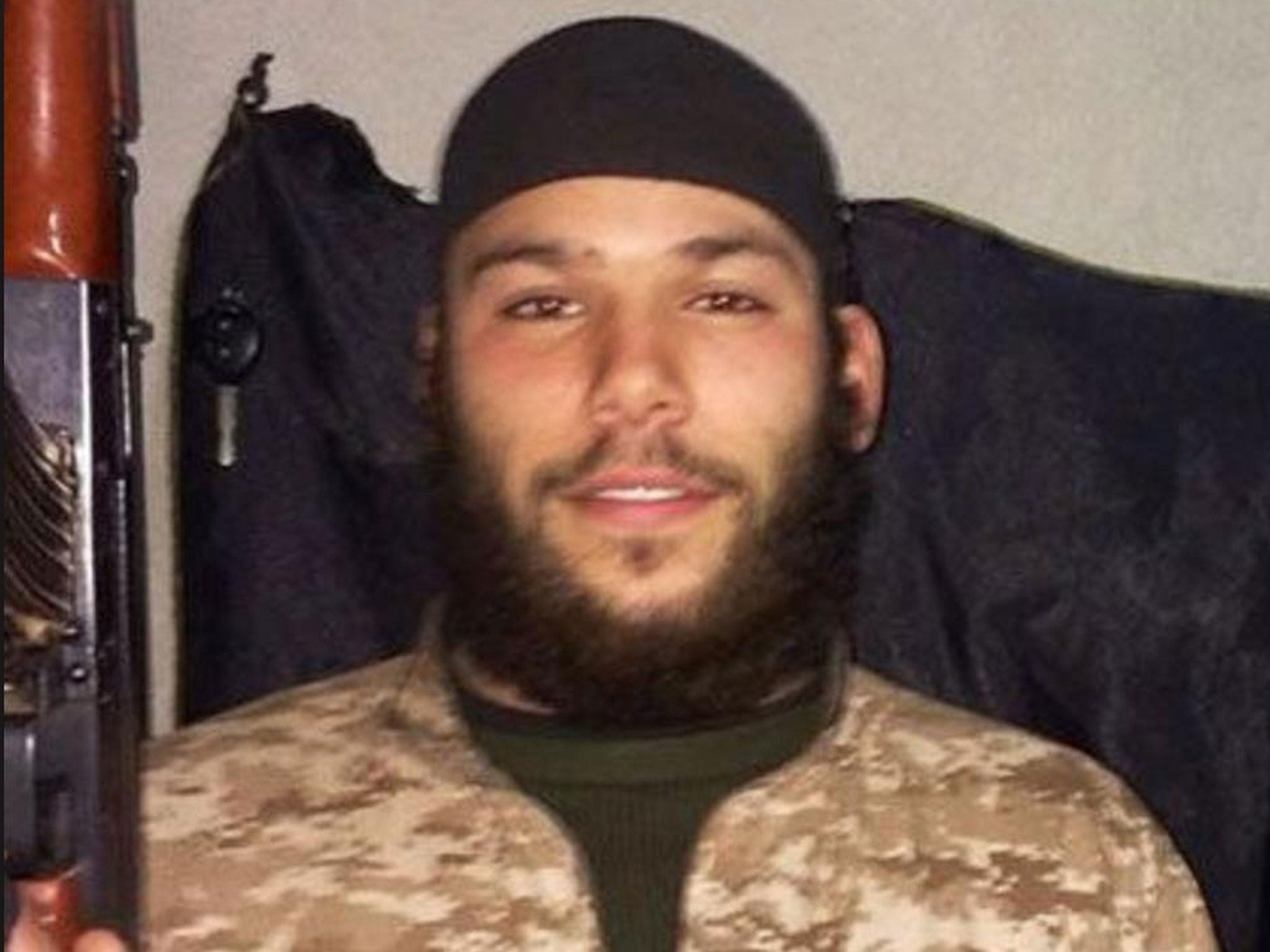Euro 2016: Belgian polce hunt for missing explosives amid fear of terrorist attack at tournament
Exclusive: Belgian raids fail to locate cache hidden after Brussels atrocity

Your support helps us to tell the story
From reproductive rights to climate change to Big Tech, The Independent is on the ground when the story is developing. Whether it's investigating the financials of Elon Musk's pro-Trump PAC or producing our latest documentary, 'The A Word', which shines a light on the American women fighting for reproductive rights, we know how important it is to parse out the facts from the messaging.
At such a critical moment in US history, we need reporters on the ground. Your donation allows us to keep sending journalists to speak to both sides of the story.
The Independent is trusted by Americans across the entire political spectrum. And unlike many other quality news outlets, we choose not to lock Americans out of our reporting and analysis with paywalls. We believe quality journalism should be available to everyone, paid for by those who can afford it.
Your support makes all the difference.Weapons and explosives stored in a safe house with the intention of being used by terrorists for attacks in France during the Euro 2016 football championship are yet to be found, Belgian security officials have admitted.
The cache was hidden, the security officials added, by the Islamist terrorists who carried out the recent atrocities in Brussels and Paris.
Forty houses were among properties searched and 40 people taken in for questioning in raids across Belgium overnight and into Saturday morning. Twelve of those detained were placed under arrest, and three Belgian nationals within those 12 have been charged with attempting to commit terrorist murder and with taking part in the activities of a terrorist group, Belgium's federal prosecutor said on Saturday. Nine others have been released.
There were also claims that there may have been plans for an attack in Brussels during Belgium’s game against the Republic of Ireland in the championship taking place on Saturday.
But no arms or explosives were recovered despite extensive searches, which included 15 garages and lock-ups and the threat of an attack in France remain potent say security officials.
The raids were part of an an intense operation which has been going on since the suicide attacks, claimed by Isis, in Brussels three months ago killing 32 people. Four safe houses were found around the time, but the security agencies believe there was another one, with weapons, which was not located.
One of those suspected of being involved in planning future attacks in France is a Swedish national of Syrian background, Osama Krayem who is thought to have fought for Isis in Syria. He was arrested in Brussels on 8 April and charged with terrorist offences, including murder, in connection with the March bombings in Belgium and last November’s Paris attacks that killed 130 people, which was also claimed by Isis. He is believed to have purchased the suitcases used in the Brussels airport attack, was seen wearing a backpack before an attack on the metro station standing alongside Khalid El-Bakraoui, who blew himself up soon afterwards at Maelbeek station.

The police were told by Krayem that he was due to carry out the next suicide attack, at Petillon station, using his own backpack bomb. However, he decided not to go through with it at the last minute and claimed he later flushed the explosives down a toilet. A number of senior security officials say that they do not believe his account of what happened to the explosives and are apprehensive that they have been hidden for future use.
Intelligence officials believe that the terrorists who carried out the bombings in Brussels were originally plotting to strike at the Euros and switched their focus to the Belgian capital at a very late stage. Belgian authorities hold, however, that terrorist attacks have been subsequently planned for both Belgium and France some of those arrested overnight are suspected of planning to carry out an attack in Brussels.
It was reported earlier this week that Belgian anti-terrorist police had sent a communiqué to their French counterparts saying that a group of Isis fighters had been sent from Syria to carry out attacks in France and Belgium. The threat has been revealed as a massive security operation, which is under way in France with repeated warnings by Western governments that Euro 2016 is likely to be a target. The French prime minister, Manuel Valls, stressed that further attacks are almost certain after the murders of a police commander and his partner by a jihadist at their home near Paris.
Some French and Belgian counterterrorism officials believe that the March attacks in Brussels were in reaction to the arrest of Salah Abdesalam, who had taken part in the November Paris attacks. There were reports at the time that Abdesalam, 26, who was arrested in the Molenbeek district of Brussels, was co-operating with the police and security agencies. Fellow members of his cell, according to this theory, panicked that the net was closing in on them and launched their attacks at short notice in the Belgian capital.
This is reflected in the disorganised way the attacks were carried out, such as those who carried out the suicide bombing at the airport having to leave one suitcase with explosives back at the Schaerbeek flat because all the bags would not fit into the minicab they had ordered.
A number of addresses were raided by the law agencies in Belgium after the bombings at Brussels airport and a metro station. One of these, a flat on the fifth floor of a block in the Schaerbeek district was used by three men who carried out bombings at Zaventem airport.
Two of them, Ibrahim El- Bakraoui, the brother of Khalid al-Bakraoui, and Najim Laachraoui, killed themselves and 11 others in suicide attacks. A third man in the team, Mohamed Abrini, who had visited Britain the year before, was arrested later.
Forensic evidence showed that the suicide vests used in the November Paris attacks were manufactured at the flat. Three other safe houses were also discovered – at the districts of Jettre, Etterbeek, Auvelais and Charleroi. The search for another safehouse continued while arrests were made of those allegedly involved in the Brussels and Paris attacks.
Krayem was born in the Syrian city of Hama; his family moved to Sweden from Syria when he was a child. He grew up in Malmo, at the Rosengard estate, a deprived environment with high unemployment which nevertheless produced a number of successful footballers including Ibrahimovic, now a superstar and one of the wealthiest sportsmen in Europe. He took part in a documentary in 2005, when he was 11-years-old, called “ Without Borders – a Film About Sport and Integration” in which he talked about being a football fan, describing how being involved in the local team had helped him settle down in his new homeland and how sport, generally, helps young migrants to integrate in Sweden.
Krayem is believed to have travelled to Syria in late 2014 or early 2015. He posted photographs of himself there with an assault rifle, in camouflage uniform, saying her was serving with Isis. It is believed that he smuggled himself into Europe, landing on the Greek island of Leros last September carrying a false Syrian passport in the name of Naim el-Hamed. He made his way to a refugee centre in Germany and was taken by Abdeslam from there to Brussels.
After a memorial service for the murdered police officer, Jean-Baptiste Savaing and his partner, Jessica Schneider, the French prime minister, Manuel Valls, gave a frank and bleak assessment: “We need to tighten the net and give police and intelligence services all the means they need. But we will witness further attacks, more innocent lives will be lost”, he said.
Join our commenting forum
Join thought-provoking conversations, follow other Independent readers and see their replies
Comments